Review: "The Beasts" of Galicia
 Saturday, July 29, 2023 at 2:27PM
Saturday, July 29, 2023 at 2:27PM 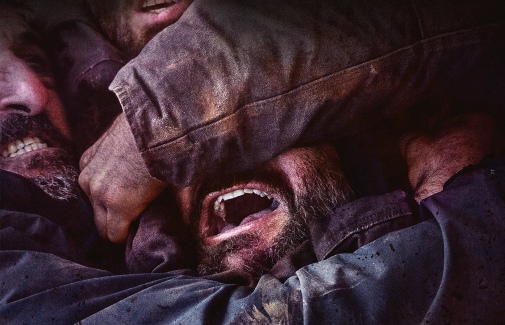
Rodrigo Sorogoyen's The Beasts opened at last year's Cannes Film Festival to thunderous acclaim, beginning a global trip through film festivals and the odd commercial market. Its greatest success came in Spain and France, the two nations that coproduced the film, whose troubled relation toils the land and souls of a narrative inspired by real-life tragedy. If you're an awards obsessive, you might remember The Beasts from news about the Goyas and César, for the film was a sweeper in the former and won Best Foreign Film against mighty competition in the latter – including the Oscar-nominated Triangle of Sadness, EO, and Close.
Regarding this bounty, it's easy to feel some skepticism creeping in, though, after you've seen The Beasts, the voters' fervor feels somewhat fair. As the film finally enjoys a limited release in American theaters, let's explore its tale of xenophobia and violence in modern Galicia, where monsters rove, feigning humanity…
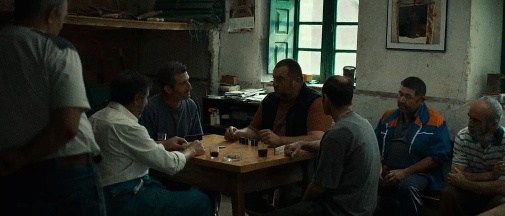
A horse struggles under two men's forceful grip. They wrestle the animal in chaotic dance, well-worn musculatures clashing against each other with curious closeness, the camera's proximity hinting at abstraction, perchance intimacy. The close-up renders the farm work into audiovisual poetry, Sorogoyen's gaze lingering on its violence as the first verse in rhyme to be resolved more than an hour into the film's future. Such lyric play is all over The Beasts' structure, setting up mirrored motions in a tragedy that's broken in two. Though, of course, none of this is evident this early on. What we get, in turn, is the first inkling of a bald-faced question about the beastliness of Man.
The two figures who wrestle their equine property, who try to tame wilderness away, are brothers Xan and Lorenzo. The latter has been kicked in the head by a horse in time misremembered, a justification for his apparent slow wit but not for his viciousness. If possible, Xan is even more brutal in spirit, his controlled demeanor serving like the whetstone that sharpens a blade. Though they'll haunt The Beasts from beginning to end, the fraternally-linked men are not to be our protagonists. After all, this is a story of outsiders rather than the people who've inhabited the land for generations, their conflict set by opposing worldviews and an insidious proposal.
Years ago, Antoine and Olga Denis arrived in a small town in the Galician countryside, pursuing a new start. Spending every penny to their name, the French couple bought property and land, setting themselves on a mission to rehabilitate ruined buildings left abandoned by the economic exodus from country to city, growing eco-friendly crops to sustain themselves along the way. Though the Denis have never been on friendly terms with their scant neighbors, an energy company set fire to the flammable peace. They want to buy out the community, razing it to the ground in order to build a wind turbine farm.
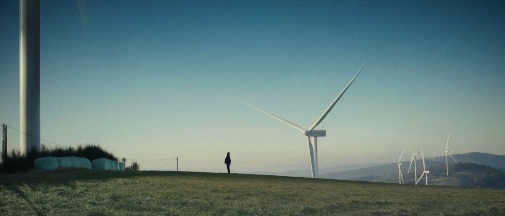
Enchanted by the offer, the locals are eager to sell their land and start anew in the cities where much of their extended family resides. The French couple, however, stands firm against the deal, effectively blocking it and incurring the Galician villager's fury. These people are gnarled barren, their spirits carved by ancestral misery unbeknownst to the Denis from France. To the outsiders, a paradise lay before them. For those who've been stuck in Eden since forever, it's more like purgatory souring into hell, a stagnate pool of broken aspirations drowning out whatever sense of awe they might have once possessed.
Looking at the land, the villagers see their beginning and end, their pain, and wish to escape. It's easy to grasp why one would look at Antoine and Olga as arrogant intruders, their project carrying a stench of city dwellers' boredom, loving the place but not the people. Loving their romantic dream while ignoring the nightmare others have endured. And yet, even as Sorogoyen considers the two perspectives, his allegiance is never with those like Xan and Lorenzo, whose general powerlessness makes them addicted to what little power they have, bullish resolve striking anathema to the maladapted diplomacies of the Denis. It makes for a sometimes self-contradicting throughline.
Nevertheless, the conflict is patiently observed, a slow racketing of tensions underscored by propulsive music with traditional roots, as if in rite of invocation to the earthbound spirits of the landscape to comment on the living's war. Articulated in long takes, it's an exercise in nervous disquiet between two inflexible forces, insular existences stuck together in a spiral of mutually-assured destruction. It paces diligently with a saturnine temper, some spry 137 minutes that never slack even as they sometimes hit the issue of repeated points. Aforementioned matters of score and direction are the partial cause, but much applause goes to Alberto del Campo's editing and the cast's collective feat.
Denis Ménochet embodies the forgefire intensifying with each indignity and undue antagonism, a mountain of a man ready for war with a portable camera in hand. His aggrieved demeanor is perfectly portrayed, but what most impresses is the river of sadness that those eyes make run underneath the rock. Marina Foïs is even more formidable, taking over the narrative on The Beasts' back half, her characterization built on a foundation of survivor's stoicism, swallowing every bitter hate in dry gulp. Her scenes with Marie Colomb as the Denis couple's visiting daughter are incredible, only surpassed by the bite of brittle promise, finishing the film like cold shiver.
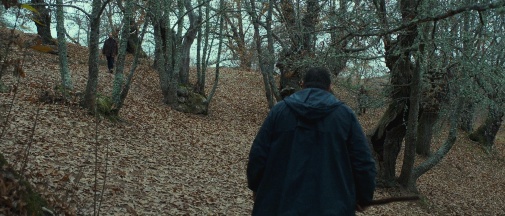
Still, French stars don't compare to the Galician actors Sorogoyen roped into his mean thriller, Luis Zahera and Diego Anido, two unholy miracles as Xan and Lorenzo, and Luisa Mereles a near-silent specter as their all-condoning mother. Zahera, in particular, brings Old Testament verve to the film, somehow more fascinating when he must draw into the background, hovering over entire sequences shadow-like, terrifying to the point of paranoia. Even when he's not around, you taste danger in the air. Moreover, the Spanish actors put forward an idea of injury amid monstrous behavior, creatures of the earth who want to escape but are trapped by an invasive species.
The Beasts reveals itself an experience defined by anger spilling in every direction, unbound by neat lines, ready to destroy the world in waves of wrath, vicious and unrelenting. The violence such sentiments inspire doesn't become the beautiful vistas, nor does it detract from it. Nature's splendor remains stoic in the face of Man's folly, the cruelty of bruising flesh a negligible smallness amid verdant hills, rocky resolves, wind forever blowing raw rapid. It's not just the people that are wicked in Sorogoyan's caustic cinema. Their environment is just as savage in its bucolic tranquility, nihilistic indifference going by another name – hopelessness that straddles the line between biting suspense and punishment.
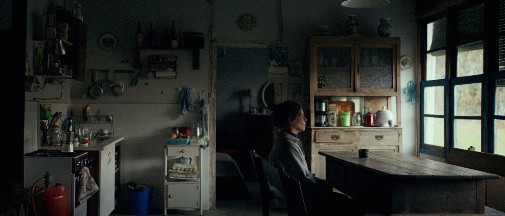
Are you enticed by The Beasts' call? Moreover, where the Goyas right to award it nine trophies?
 Denis Ménochet,
Denis Ménochet,  French cinema,
French cinema,  Goyas,
Goyas,  Marina Foïs,
Marina Foïs,  Reviews,
Reviews,  Rodrigo Sorogoyen,
Rodrigo Sorogoyen,  Spain,
Spain,  The Beasts,
The Beasts,  thriller
thriller 


Reader Comments (1)
I love the second half and the big scene between mother and daughter. I find the first half a bit repetitive.
I'm Team Alcarràs. Should have won picture, director, cinematography and production.